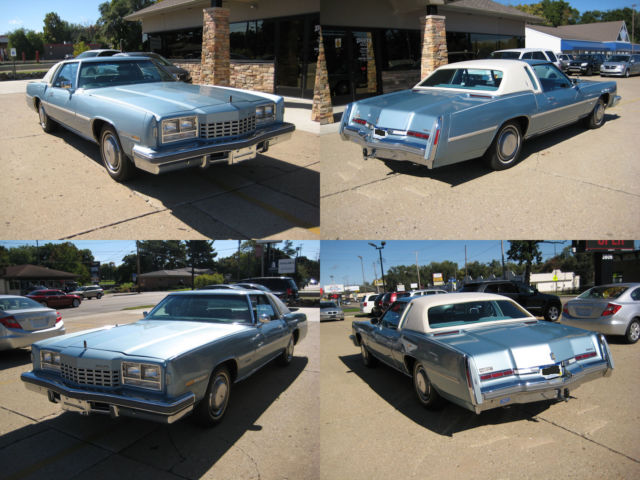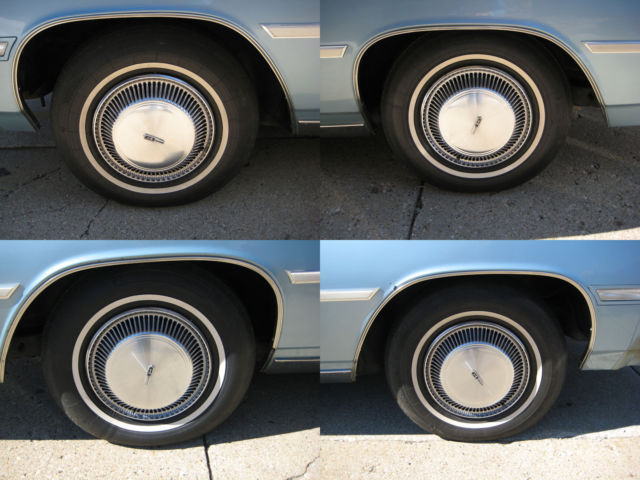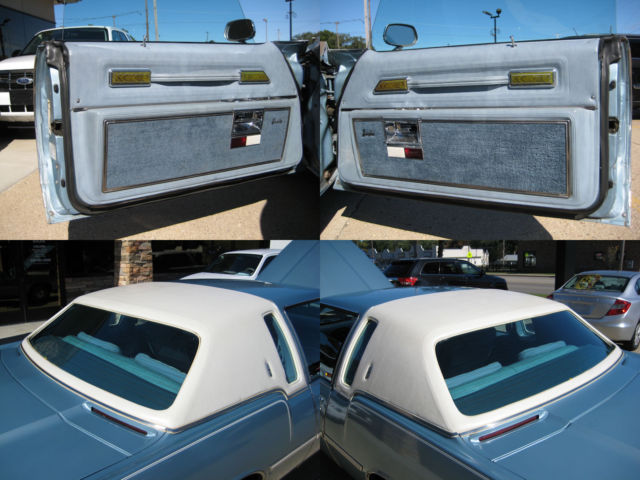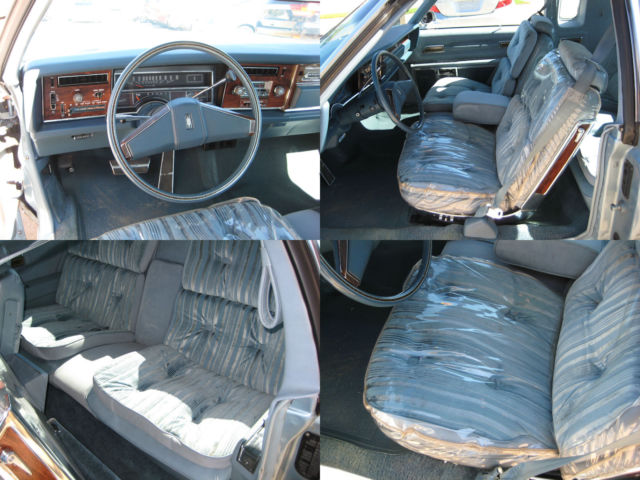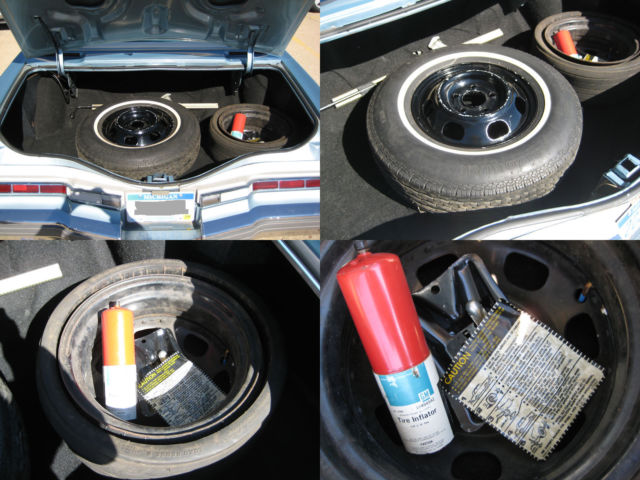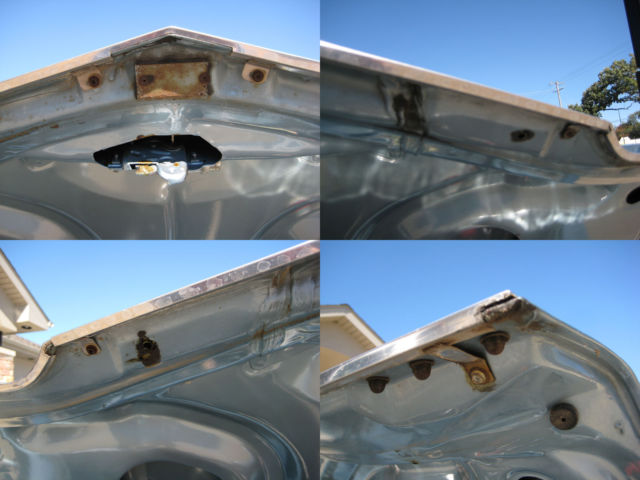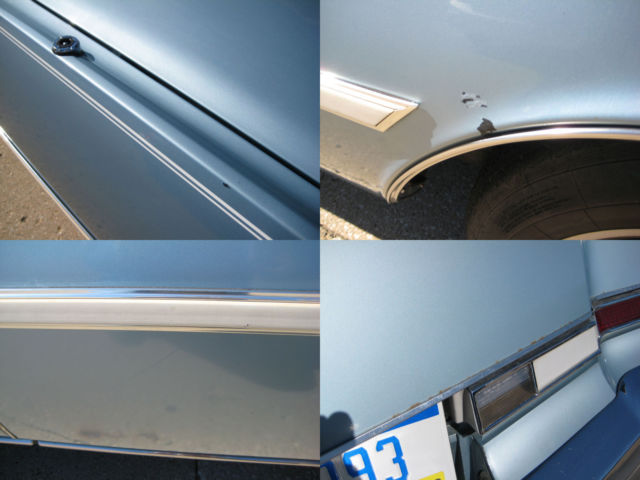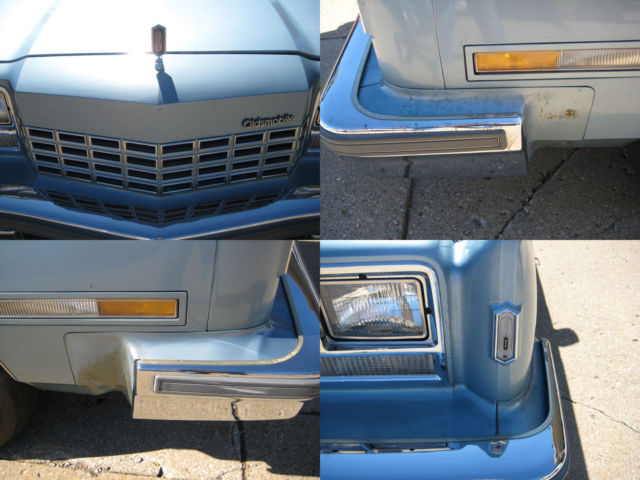1977 Oldsmobile Toronado Brougham Coupe 2-Door All Original Never Seen Snow
- Price:
- Location: Kalamazoo, Michigan, United States
- Make: Oldsmobile
- Model: Toronado
- Type: Coupe
- Trim: Brougham Coupe 2-Door
- Year: 1977
- Mileage: 76,225
- VIN: 3Z57K7M710876
- Color: Light Blue
- Engine size: 6.6L 403Cu. In. V8 GAS OHV Naturally Aspirated
- Number of cylinders: 8
- Power options: Air Conditioning, Power Locks, Power Windows, Power Seats
- Fuel: Gasoline
- Transmission: Automatic
- Drive type: FWD
- Vehicle Title: Clear
1977 Oldsmobile Toronado Brougham Coupe 2-Door Description
This beautiful light blue all-original Toronado spent most of its life in Arizona and was never driven in the winter in the "rust belt" states. It currently belongs to the grandson-in-law of the original owner and is in very good condition inside and out. The car was always garage-kept and has mostly been in storage for the past 20 years except for the occasional country drive on a nice day to keep everything lubricated. With a 403ci engine, automatic transmission and 76,000 original miles the two-door sedan runs and drives like new. In the trunk you will find the original spare tire with inflator as well as a full-size spare that was purchased separately by the original owner. Some of the plastic exterior parts have aging typical of vehicles from this era, so I have done my best to show those in the vehicle photos.
About the Oldsmobile Toronado (from Wikipedia):
The Oldsmobile Toronado is a personal luxury car that was produced by Oldsmobile from model years 1966 to 1992. Designed to compete with the Ford Thunderbird and General Motors' own Buick Riviera, the Toronado is historically significant as the first U.S.-produced front-wheel drive automobile since the demise of the Cord in 1937. The Toronado placed third in the 1966 European Car of the Year contest, a distinction no other American car has achieved before or since, and won the 1966 Motor Trend Car of the Year award in the U.S. It used the GM E platform introduced by the rear-wheel drive Riviera in 1963 and shared a year later with the front-wheel drive Cadillac Eldorado. Although each had quite different styling, the threesome shared the E platform for most of the Toronado's 28-year history.
With radically different styling from the first generation, the Toronado had metamorphosed from a "GT"-style car into something more traditional in the luxury car field. It was now more similar to the Cadillac Eldorado than the Buick Riviera, with styling taking several cues from the 1967–70 Eldorado. The new look attracted many new buyers, as sales increased dramatically. Front disc brakes became standard.[13] The front end utilized a novel air induction system, splitting the airflow from below the headlights, in a "bottom breather" fashion. When United States Federal bumper standards were implemented, the front air intake was phased out for a conventional approach from below the bumper.
During most of the Toronado's second-generation run, two interior trims were generally offered each year. The standard interior trim consisted of a choice of cloth or vinyl upholstery and a Custom Sport notchback bench seat with center armrest. An optional Brougham interior available in cloth, velour or vinyl trims included cut-pile carpeting, door-mounted courtesy lighting and a split 60/40 bench seat with armrest. From 1974 to 1978, a flat instrument panel (again shared with Delta 88 and Ninety-Eight models) was used that featured a horizontal sweep speedometer flanked by a "Message Center" of warning lights, fuel gauge and shift quadrant, with the other controls in the same locations as in previous years. As befitting a luxury car, Toronados featured a long list of standard equipment that included Turbo Hydra-Matic transmission, variable-ratio power steering, power front disc brakes along with an electric clock, carpeting and deluxe wheel covers. Virtually all Toronados were sold loaded with extra-cost options including air conditioning, AM/FM stereo with 8-track tape player, power trunk release, vinyl roof, tilt and telescopic steering wheel, cruise control, power windows, power door locks and six-way power seats. Power windows became standard equipment in 1975. A new feature in 1974 was a gauge that monitored if the driver was driving economically or not. Also for 1977, the 455 cu in (7.46 L) V8 was replaced by a smaller 403 cu in (6.60 L) engine (rated at 185HP/325 lb.ft.), due mainly to forthcoming government Corporate Average Fuel Economy standards (implemented beginning with the 1978 model year). In addition, the 1977 Delta 88 and Ninety-Eight models, formerly the biggest cars in the Oldsmobile stable, were downsized. For two more model years, the Toronado would be the largest Oldsmobile, and, after the mid-sized Cutlass line's downsizing for 1978, the Toronado looked hopelessly out of place in the lineup, given the industry-wide shift to smaller cars.
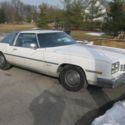 1977 Oldsmobile Toronado Brougham Coupe 2-Door 6.6L
1977 Oldsmobile Toronado Brougham Coupe 2-Door 6.6L
Mileage: 30,000
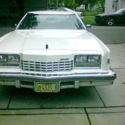 1977 Oldsmobile Toronado Brougham Coupe 2-Door 6.6L - Chicago, IL.
1977 Oldsmobile Toronado Brougham Coupe 2-Door 6.6L - Chicago, IL.
Mileage: 66,025
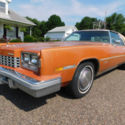 1977 Oldsmobile Toronado Brougham - 53,000 Miles Original Survivor
1977 Oldsmobile Toronado Brougham - 53,000 Miles Original Survivor
Mileage: 53,000
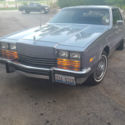 1981 Oldsmobile Toronado Brougham Coupe 2-Door 5.0L
1981 Oldsmobile Toronado Brougham Coupe 2-Door 5.0L
Mileage: 77,000
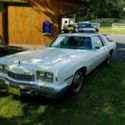 1978 Oldsmobile Toronado Brougham Coupe 2-Door 6.6L Collector car
1978 Oldsmobile Toronado Brougham Coupe 2-Door 6.6L Collector car
Mileage: 43,869
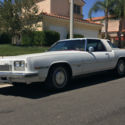 1978 Oldsmobile Toronado XS Brougham Coupe 2-Door 6.6L (403cui) V8
1978 Oldsmobile Toronado XS Brougham Coupe 2-Door 6.6L (403cui) V8
Mileage: 38,403
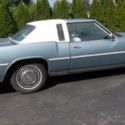 1977 oldsmobile toronado brougham
1977 oldsmobile toronado brougham
Mileage: 76,319
 LUXURIOUS RARE & ELEGANT-1977 Oldsmobile Toronado Brougham XS - 24K MILES
LUXURIOUS RARE & ELEGANT-1977 Oldsmobile Toronado Brougham XS - 24K MILES
Mileage: 24,000
 1977 OLDSMOBILE TORONADO BROUGHAM BEAUTIFUL 69,361 MILES FREE DELIVERY !
1977 OLDSMOBILE TORONADO BROUGHAM BEAUTIFUL 69,361 MILES FREE DELIVERY !
Mileage: 69361
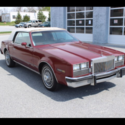 1984 Oldsmobile Toronado Brougham Classic Coupe
1984 Oldsmobile Toronado Brougham Classic Coupe
Mileage: 99,999
